Ingredients
vitamin a is found in apples and is beneficial for brain health by supporting neuronal plasticity and cognitive function. plus it supports vision, so you can always keep your health goals in sight.
found in fruits like bananas, this vitamin b6 is beneficial for brain health & when combined with magnesium, it has also been shown to support a healthier central nervous system.
the multi-talented vitamin c reduces oxidative stress and inflammation, supports the recovery of the dopamine system, and cleanses your body from pathogens & toxins.
this sunny delight helps your body absorb calcium and phosphorus, and assists in immune function. essential for strong bones and teeth, vitamin d keeps you standing tall.
why is green tea good for you? egcg is why. one of the most active
polyphenolsin any tea with well-
known antioxidant effects; egcg
inhibits neuronal cell death and
dopamine toxicity by preventing
oxidative stress.
vitamin e is a master of hormonal balance. it plays a key role in hormonal health, balancing your endocrine system and nervous systems.
keep this nutrient close to your heart: vitamin k serves a role in many of your body’s functions from bone health to heart health and blood blow control.
like a magician, thiamin helps your body transform food into energy, which is important for improved focus and daily vitality.
another energy wizard, riboflavin (aka vitamin b2) helps convert nutrients from carbohydrates, fats and proteins into useable cellular energy called “ATP”.
niacin (aka vitamin b3) is master multi-tasker: supporting a healthy heart and metabolism, plus aiding in the balance of blood cholesterol levels.

found in foods like beans, folate (aka vitamin b9) is essential in our body for brain development, red blood cell production, amino acid metabolism and DNA synthesis.
vitamin b12 is good for everything: the central nervous system, digestion, heart health, and energy. your cellular swiss army knife.
found in sweet potatoes, biotin (aka vitamin b7) promotes proper thyroid activity and defends against adrenal fatigue.
another all-star b-vitamin: pantothenic (aka vitamin b5) helps with energy, building red blood cells, and balancing stress and sex-related hormones.
a phospholipid found in peas, choline plays an important role in memory, movement and metabolism and is used to reduce fat deposits in the liver and under the skin.
we all know that calcium is great for healthy bones and teeth, but it’s also plays an important role in preventing blood clotting, helping muscles to contract, and regulating normal heart rhythms and nerve functions.
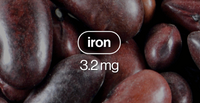
iron is essential for the production of blood and hemoglobin (a type of protein in red blood cells that carries oxygen from the lungs to the body).
working side-by-side with calcium, phosphorus supports the growth, maintenance, and repair of all tissues and cells. plus, it helps produce the building blocks of your body: DNA.
iodine helps with producing detoxifying hormones that support metabolism. like a natural thermostat, iodine makes sure you run at a comfortable temp.

found in coconuts, magnesium stays busy with the production of more than 300 different enzymes that do everything from building strong bones to regulate blood sugar, blood pressure, and more.

zinc is like a cellular handyman. necessary for the creation of DNA, growth of cells, building proteins, healing damaged tissue, and supporting a healthy immune system: you name it, zinc supports it.
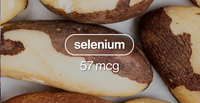
selenium, a trace mineral found in nuts, increases antioxidant capabilities and the quality of blood flow, and helps fight oxidative stress and inflammation. plus, it helps you sleep!

feeling sluggish? you need copper. important for the function of several enzymes and proteins that are involved in energy metabolism, DNA synthesis and respiration.

found in rice, manganese helps the body form connective tissue, bones, and sex hormones. It also plays a role in fat and carbohydrate metabolism, calcium absorption, and blood sugar regulation.

chromium keeps your systems running smoothly. from helping improve insulin sensitivity to enhancing protein, carbohydrate, and lipid metabolism.
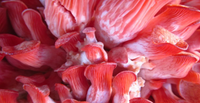
found in foods like cheese, molybendum is a trace mineral your that detoxifies cells helps constructproteins and genetic material like DNA.
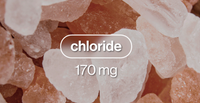
chloride is your hydration helper. besides regulating fluid in the cells, it facilitates the flow of oxygen and carbon dioxide within cells: so you can breathe easy.
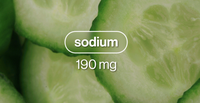
also involved in hydration, sodium helps your body conduct nerve impulses and contract & relax muscles..
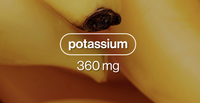
when your body needs help maintaining cellular hydration, nerve signals, and muscle contractions: potassium’s got your back.

found in coconuts, mct oil is like rocket fuel for your cells. used by your body as a quick energy source, supports digestion and nutrient absorption, and aids in managing neurological function.

an amino acid found in salmon, l-glycine acts as neurotransmitter in central nervous system and helps your body produce protein, collagen, and natural antioxidants.

another essential amino acid, lysine HSI helps the body absorb calcium, and plays an important role forming collagen; keeping skin firm and muscles strong.

l-glutamine helps detoxify your body by removing excess waste. It also helps your immune system function and is helpful for normal brain function and digestion.

the most scientifically advanced form of turmeric available. it helps fight inflammation, manage pain, swelling, digestion, cholesterol, blood sugar and more.

found in grapes, resveratrol is a potent antioxidant and anti-inflammatory compound that also helps in protecting brain cells from damage.
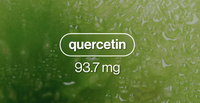
found in apples, quercetin manages inflammation inside out. heart disease and blood vessel problems, allergies, infections, chronic fatigue, and symptoms related to autoimmune disorders like arthritis: you name it, quercetin handles it.
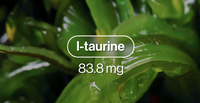
taurine decreases blood pressure and inflammation, protecting against heart disease and prevent fatty plaque build-up in the arteries. a truly essential amino acid.
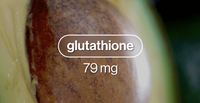
the mother of all antioxidants, glutathione is an amino acid involved in tissue building and repair, protein construction, and immune system function

a healthy phytochemical found in sprouts, msm (Methyisulfonyl Methane) that helps relieve joint pain, reduce inflammation; research supports its use in treating a number of conditions, from arthritis to rosacea.

a powerful digestive aid, betaine HCL aids in liver function, detoxification and cellular function within the body. Its most crucial role is to help the body process fats.

nac (aka n-acetyl cysteine) protects the liver and kidneys and improves detoxification pathways, in
addition to having powerful anti-inflammatory effects.
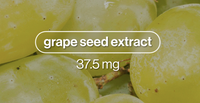
grape seed extract improves blood flow and circulation problems. has been shown to reduce blood pressure, particularly in young to middle-aged people and those who have excess weight.

milk thistle is an herb that promotes liver function and detoxification.; research shows it beneficial for hepatitis, cirrhosis, jaundice, diabetes, indigestion, and other conditions.

get excited about sulforaphane. found in broccoli, this compound boosts your body's natural defense & detoxification systems against oxidative stress.

inositol helps regulate blood sugar control by improving insulin sensitivity. it also helps with mental health issues, meaning brains and blood agree on inositol.

boron is your bones’ best friend. it helps keep the skeletal structure strong by adding to bone density, preventing osteoporosis, treating conditions like arthritis, and improving strength and muscle mass.
